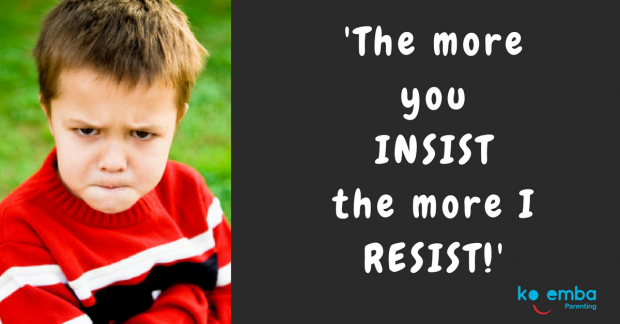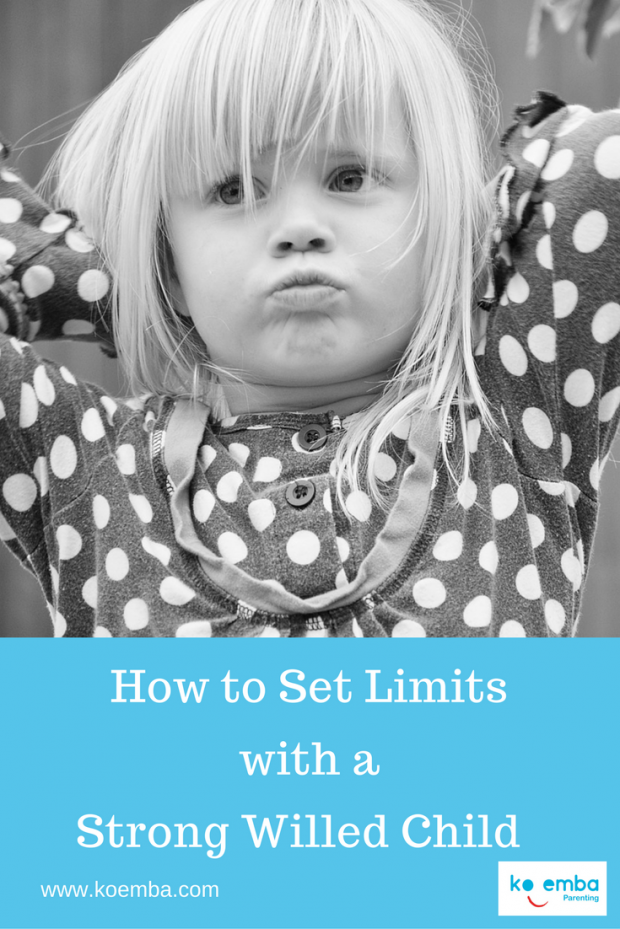
Jane breaks off our conversation mid-sentence. She dashes across the room to her toddler who is wrenching a doll from a child half her own size. It’s hard to set limits with a strong willed child!
‘Mary, Suzie is playing with the doll now. Wait your turn.’
Jane remains calm yet firm as she holds a limit with her child. Mary cries her protest. Jane consoles her and, as her tears subside, she redirects her attention to another toy. Every parent of a young child identifies with the challenge of holding helpful boundaries, especially with a strong willed child, so that little ones learn how to handle social interactions. What we sometimes overlook is how we, as parents, cross boundaries with our children in a way that is hurtful, and possibly even harmful to their emotional well-being and our relationship with them. Think about this situation:
The hostess bends towards Linda’s five year old. The lady holds a plate with a tantalising array of cookies. Little chocolate balls, squares of shortbread, star-shaped biscuits glittering with tens and thousands, tiny coconut rolls with cherries on top. The child reaches out his hand but before he can choose a cookie, his mother reaches forward, takes a plain shortbread and passes it to him. The child pulls back in protest. He wants to choose his own. ‘Take it,’ hisses his mother.
The child plonks himself on the chair, head down, bottom lip thrusting forward, arms folded.
‘Behave yourself,’ admonishes his mother.
Her son is not ‘misbehaving’. He’s protesting at the way she has infringed his boundary. Linda seems unaware that her behaviour as a parent hasn’t been helpful here. Imagine how you would feel if you were offered a delicious choice of cookies, then someone picked up the plainest biscuit on the plate and insisted that’s the one you were to eat. How would you react!
As parents, we often think that we ‘know best’. When they protest we label them as ‘strong willed’ or ‘defiant’. We try to tell our children what they ‘should’ do or think. We attempt to assert power over the child’s internal processing.
Our parenting would be more helpful if we rather than gently guide and support our children to find their own unique path. When we see a situation from the child’s perspective, we recognise that sometimes their ‘bad behaviour’ is a protest because we infringe their boundaries; we try to take control of that which is not ours to rightfully control.
We infringe our children’s boundaries when we impose our will on what can be a child’s decision. Every child is a unique person who intuitively senses his need to find his own path in life. He learns by what is modeled to him, but he’s likely to resist that which is imposed.
‘The more you insist the more I resist.’

Sometimes our behaviour to our children is hurtful rather than helpful. When we exert control over our children, rather than supporting them to develop co-operative behaviour, we are breaching the boundaries of our relationship. We as parents need to learn the art of self-containment – of not taking control of that which is not ours to decide. In any relationship, whether parent-child, adult to adult, or even country to country, issues of damaged boundaries are invariably linked to power being wielded inappropriately.
A helpful analogy in this regard is one’s own skin – a flexible membrane that both protects one from infection and damage and contains that which is within. Without the boundary of our skin there would not be adequate containment for us or for others. It is interesting to note that when we cross the boundaries of appropriate social conduct, our metaphors of speech relate closely to that of breaking the boundary of skin; we refer to a person “being abrasive”, of “feeling wounded” or “scarred”.
As parents we need to be aware that our everyday interactions can cause ‘relationship eczema’ – ‘an itch that rashes’. Small infringements of our children’s boundaries can overtime spread into a painful, inflammatory condition. I know this through my own parenting journey. It was when my second son was already a teen that I realised that it would be more helpful, rather than trying to control my child, to notice and adjust my own way of interacting.
Let’s re-run the situation with Linda. The lady offers her child the cookies. Maybe his fingers stretch out to grab a handful. Linda can gently say,
‘Choose one. When that’s finished you may have another.’
Her child might surprise her with his cooperative behaviour.
It is possible that her child might live up to her expectations of, ‘He’ll just grab’, because if he’s experienced many situations where his boundaries have been infringed, he might not now contain himself.
The answer isn’t to impose control over your child, but rather for you as parent to learn the art of Mindful Parenting; to respect the boundaries of the child (and of oneself) within the dance of relationship. But how? A starting point is to work with a Parent Coach or sign up for a Parenting Course.
It’s never too late to begin the work of respecting boundaries in our interactions. It matters not only for our parenting but for the well-being of every relationship. Our children can be our best teachers because they are so much more forthright in their behaviour than we tend to be in our adult-to adult interactions. Our children let us know through their behaviour when we haven’t contained ourselves adequately.
Imagine the ‘skin’ of your relationship. Is it smooth, flexible and healthy? Or is it angry, inflamed, easily-punctured and infected? The good news is that we as parents can be the healing balm that’s needed.

What do you think? We’d love to hear your stories and questions about dealing with a strong -willed child. Please share in the Comments box below because other parents are also struggling with the same challenges.



No comments yet.